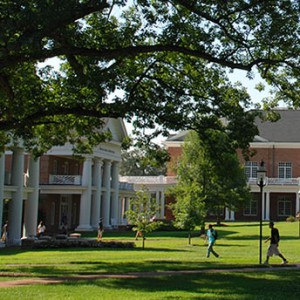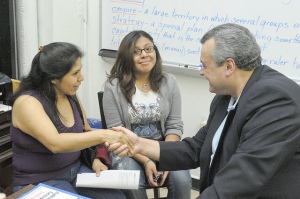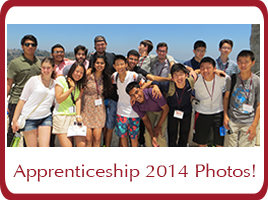By Min-Ling Li
Min-Ling is a Program Coordinator at IEA and works most closely with our high school Apprenticeship Program, through which she meets and interacts with many gifted high school students. Before coming to IEA, she was a high school mathematics teacher.
 Going off to college is probably one of my best and most anxious memories. At that point in time, it seemed that all of my prior education was in preparation for this milestone. As a first-generation college student, the plethora of tasks to complete for college applications was overwhelming. I recall that my mom, who completed 6th grade in China before immediately beginning to work, advised me that I had completed all the hard work and all that was left was to communicate my story to people whose actions and opinions we had no control over. My dad, who graduated with a Master’s Degree from Hong Kong Polytechnic University, simply gave me a stern look, smile and nod of encouragement when the subject of college was spoken of. Needless to note, “vini, vidi, vici” (I came, I saw, I conquered), and tada!
Going off to college is probably one of my best and most anxious memories. At that point in time, it seemed that all of my prior education was in preparation for this milestone. As a first-generation college student, the plethora of tasks to complete for college applications was overwhelming. I recall that my mom, who completed 6th grade in China before immediately beginning to work, advised me that I had completed all the hard work and all that was left was to communicate my story to people whose actions and opinions we had no control over. My dad, who graduated with a Master’s Degree from Hong Kong Polytechnic University, simply gave me a stern look, smile and nod of encouragement when the subject of college was spoken of. Needless to note, “vini, vidi, vici” (I came, I saw, I conquered), and tada!
That was 10 years ago, and I was curious about how students in our IEA community view higher education now. I have the privilege of working with highly gifted and mature youngsters, and with their help I compiled some of their thoughts, expectations, anxieties, and aspirations about higher education. By sharing this data, I hope to provide information and comfort, tell their stories and compel higher education and the world to prepare for this creative, curious and free-natured group of young adults. I asked students ages 13 through 18 amongst our community of Caroline D. Bradley Scholars, Apprentices and Yunasa Emerging Leaders and Counselors in Training about their outlook on higher education. The data from the 40 respondents is featured below. Thank you to all those who contributed!
Expectations
When asked, “In what ways do you hope learning as a young adult will be different from high school?”, 80% of students used the words “free,” “freedom” and “autonomy”:
- “I hope that there will be more freedom involved. I like to believe that I am a very independent and intellectually bold thinker, and I know that I apply myself better to long-term projects than busy work. So, I hope that there will be less busy work and more projects/papers to engage with.”
- 82% of students responded similarly to this student, yearning for greater depth and relation to solving problems that affect the world: “I hope that as a young adult I will be able to learn more about the things that matter to me. In high school we often talk about topics that do not interest me, or we talk about topics too shallowly. I hope to be able to learn with greater understanding and purpose.”
- Students also expressed a need to learn based on their pace: “I hope to have more freedom to choose what I learn and to be able to make my own choices regarding the course material and pace as opposed to having to follow strict guidelines.”



